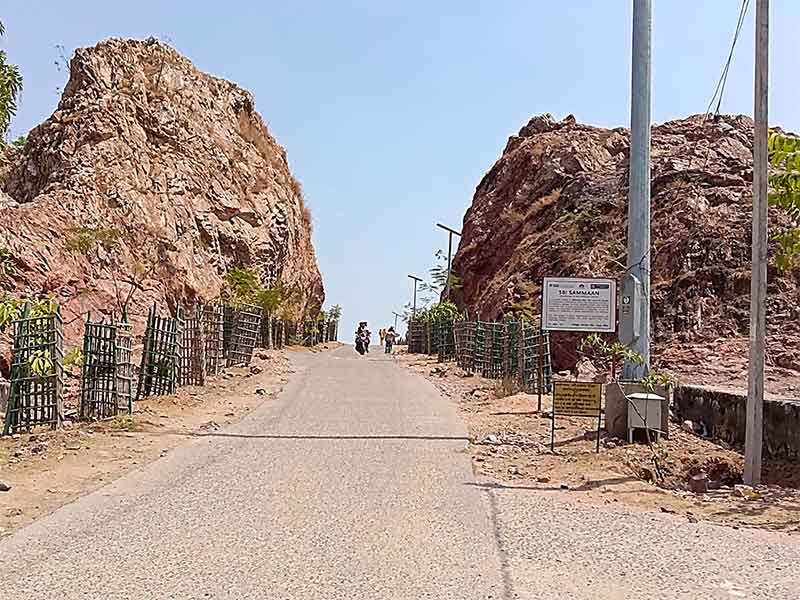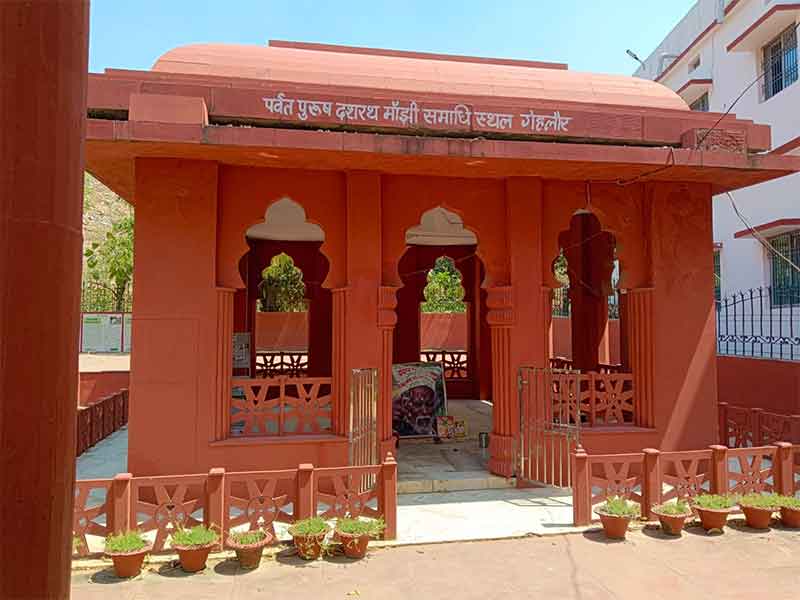
How does one pay proper homage to a man who became a legend in his life by devoting his entire life to helping all people of his and neighboring villages? How can one live up to his vision and ideals?
This question must be arising in the minds of all those thoughtful persons who have been involved in the efforts to honor the work and memory of Dasrath Manjhi, the brave man of quiet but firm determination from the village of Gehlaur (Gaya district) who lived up to his pledge of carving a life-saving path from the middle of the mountains.
Clearly in keeping with the very deep concern that Dashrath Manjhi had for reducing the distress of all people in his village and nearby areas, the best homage would be to contribute the most for this reduction of distress and causes of distress, with special emphasis on helping the poorest communities who suffer the most from distress.
For this cooperation and convergence of government and non-government efforts is needed and in addition mobilization and strengthening of communities is needed as strengthened communities are in a better position to demand and secure the help from various existing development and welfare programs.
Acute drinking water shortage in the first six months is a widespread problem here, particularly in the communities of poorest people.

As the village mukhiya explained, this region has a well-developed ahaar traditional system of conserving rainwater which is helpful for farming but in years of very low rainfall or lack of timely rain some additional water supply is also needed and this can be provided by tapping the Ganga water being supplied to Gaya city as this village falls on the route of the pipes carrying this water.
Similarly in the case of the acute water shortage being seen in the hamlets of the poorest people at present, causing immense difficulties, additional water needs to be obtained from this or any other suitable source.
It is very important for the government to ensure security of housing and housing land for the poorest people and if displacement is caused due to any reason such as highway or road widening, then adopting a very sensitive and responsible approach towards the welfare of these communities, it should be ensured that satisfactory rehabilitation is first arranged and only after ensuring this anyone should be asked to leave his present home if this is necessary. As there are many landless households here who do not have any farmland, the least that can be done to protect their base in the village is to ensure that their housing and housing land rights are well protected.
There are several government schemes which if accessed in better ways by the weaker sections here can help them in important ways. Here again the cooperation of government departments and voluntary sector or community organizations, helped by strengthening of communities, can play an important role. There can be improved and better cooperation for taking information regarding these schemes among people and helping them in the initial phase at least in various ways to apply for these and to actually get the benefits. In the process of very sincere efforts being made for this, several reasons why such schemes could not adequately benefit highly deserving and needy people including poorest people in the past are likely to be discovered and a very sincere effort should be made to resolve these problems.
Voluntary efforts can also contribute more directly in several areas where their creativity is likely to give particularly good results, as seen in some of the recent collaborative efforts of SBI Foundation and Sahbhagi Shikshan Kendra here in recent times (Sammaan Project).
In this context supportive efforts for more diversified livelihoods that can help the poorest communities and imparting skills related to this can be particularly useful. This should be taken forward in a participative way so that people’s perceptions on the kind of livelihood promotion that can work better in local conditions gets due importance.
Once all these efforts are made, we will be able to come much nearer to the vision and ideals of Dashrath Manjhi and such an effort will be the true homage to Dashrath Manjhi.
Bharat Dogra is Honorary Convener, Campaign to Save Earth Now. His recent books include Protecting Earth for Children, Planet in Peril, A Day in 2071 and Man over Machine.














































